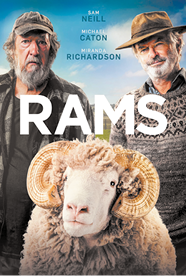Página 206
two hundred six
UNIT 15
ACTIONS SPEAK LOUDER THAN WORDS
A expressão actions speak louder than words é usada para dizer que ações têm mais impacto do que palavras.
I always say I want to be more active, but actions speak louder than words, so I've started going to the gym regularly and taking daily walks.
1. Em seu caderno, escreva em inglês uma frase que exemplifique o uso dessa expressão.
Resposta pessoal. Peça aos estudantes que leiam sua frase para os colegas.
Exchanging ideas
Agora, você vai conversar com o colega mais próximo sobre as questões a seguir. Virem-se um para o outro, ouçam as orientações do professor e iniciem a conversa.
1. Na imagem, está representado o líder sul-africano Nelson Mandela. O que você sabe sobre ele?
2. Nelson Mandela ficou conhecido por lutar contra o apartheid na África do Sul. Em sua opinião, de que forma as atitudes de Mandela se relacionam com a expressão actions speak louder than words?
3. Em sua opinião, a quais outras pessoas a expressão actions speak louder than words pode ser aplicada?
Professor, professora: Respostas e comentários nas Orientações para o professor.
Nesta unidade, você terá como objetivos:
- refletir e conversar sobre experiências de vida que acontecem há algum tempo;
- ler e compreender uma reportagem sobre uma realização na vida de uma pessoa idosa;
- ouvir e compreender um episódio de podcast sobre medos;
- compreender e utilizar o tempo verbal present perfect na forma negativa para falar de algo que não acontece há determinado tempo;
- praticar a pronúncia dos sons /ʃ/ e /tʃ/ em inglês;
- fazer uma apresentação sobre uma pessoa idosa ativa e inspiradora.
Página 207
two hundred seven

Página 208
two hundred eight
Warming up
Life experiences
1. Você acha que as experiências pelas quais passamos podem mudar nossa vida de alguma maneira? Por quê?
Resposta pessoal. Promova uma discussão com a turma sobre como nossas experiências podem mudar nossa forma de ver o mundo, refletindo em nossas atitudes, opiniões, crenças, valores e comportamentos, por exemplo.
2. Leia a tirinha a seguir e responda às questões.

THAVES. Frank & Ernest. GoComics, July 31st, 2010. Available at: https://s.livro.pro/z9akp6. Accessed on: Apr. 29th, 2020.
a ) Quais são os personagens da tirinha?
I ) Dois golfinhos.
II ) Duas baleias.
Resposta: Alternativa II.
b ) O que há de incomum nessa tirinha?
I ) Os personagens estarem nadando lado a lado.
II ) Um dos personagens estar usando óculos.
Resposta: Alternativa II.
c ) Desde quando um dos personagens usa óculos?
I ) Desde quando algo o fez perceber essa necessidade.
II ) Desde que nasceu.
Resposta: Alternativa I.
d ) Qual das imagens a seguir melhor representa o que aconteceu com a baleia?
I.

II.

Resposta: Alternativa I.
e ) Que conclusão a baleia tirou dessa experiência?
I ) Concluiu que sua visão não era boa e que precisava usar óculos.
II ) Concluiu que pareceria mais interessante se usasse óculos.
Resposta: Alternativa I.
3. Pense em uma experiência pela qual passou e que o fez perceber que precisava de uma mudança em sua vida. Comente essa experiência, em inglês, com os colegas e o professor.
Resposta pessoal. Nesse momento, incentive os estudantes a compartilhar suas experiências com os colegas. Anote na lousa as experiências que eles mencionarem, aproveitando para ampliar o vocabulário da turma.
Página 209
two hundred nine
Learning vocabulary
1. Complete as frases a seguir com as expressões que acompanham as imagens para escrever as atividades que você já realiza por determinado período. Caso nenhuma delas faça parte de sua rotina, descreva outras atividades.
a ) I have ■ since I was a kid.
b ) I have ■ for a few years.
c ) I have ■ since the beginning of this year.
d ) I haven't ■ for a long time.
Tip
Você pode usar for e since com o tempo verbal present perfect para se referir a períodos de tempo em que uma ação é (ou não é) realizada. For indica há quanto tempo uma ação acontece: for a week, for a month, for hours, for ten days etc.; since indica o momento inicial da ação: since yesterday, since 2016, since January, since last Tuesday etc.

played a sport or worked out regularly
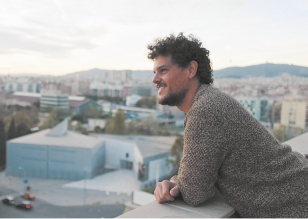
lived in the same city

studied English

watched a TV series

played a musical instrument

played an online game
Respostas pessoais. Oriente os estudantes a primeiro completar as frases com uma alternativa que seja condizente com a realidade deles. Ressalte que eles não precisam usar todos os itens.
Reading
Report
Pre-reading
1.
Track 33 Listen to part of an
interview with Joan Steidl, a 65-year-old woman, and answer the
following questions.
a ) What did Joan Steidl decide to do?
Resposta: After the pandemic, she decided to write comedy and, after that, she decided to return to college.
b ) How did she feel about it?
Resposta: She felt young, like an 18-year-old again. She felt like she fit right in.
c ) What do you think about Joan's decision?
Resposta pessoal. Incentive os estudantes a compartilhar com a turma suas opiniões e pensar como seria ter uma colega da mesma faixa etária de Joan Steidl.
2. You are going to read a text called " Lifelong✚ learning: Stanford GSE student collects her master's degree✚ after 80 years in education". Analyze this title. What words and expressions do you expect to be mentioned in it?
Possíveis respostas: Age, school, student, learning, teacher /professor, education, elder people, dream, don't give up etc.
Página 210
two hundred ten
While reading
1. Read the text and verify if your answers to the previous activity were correct.
[...]
Lifelong learning: Stanford GSE student collects her master's degree after
80 years in education
Virgínia Hislop receives a master's degree in the 2024 diploma ceremony at the age of 105.
It's been a minute since Virginia "Ginger" Hislop was a student at Stanford Graduate School of Education (GSE).
When she started at the GSE in 1936 – then the Stanford University School of Education – her plan was to get her bachelor✚'s of education, which she did in 1940, and obtain her master's of education so she could teach, which she started directly after.
[…]
However, just after completing her coursework✚ and just before turning in her final thesis, her then boyfriend George Hislop AB '41, a GSE student in Reserve Officers' Training Corps (ROTC), got called in to serve during World War II, prompting✚ the pair to get married and Virgínia Hislop to leave campus before graduating.
[…]
Family ties to Stanford
ln many ways, Hislop's work in education after leaving Stanford began with her children.
When her daughter Anne started first grade in Washington, Hislop advocated on her behalf✚ so that she could take advanced English, rather than a home economics course being suggested by the school.
[…]
After that first encounter✚, Hislop was moved to join the school board✚ to have more of a say in what children were being taught, to help set them up for success.
"I felt that all the kids should have an opportunity to develop their potential as best they could, and that everybody should have a crack✚ at higher education if they wanted," said Hislop, who stayed on the school board for 13 years before moving her involvement to the city, county✚ and state level in Washington state.
Some of her roles included chairing✚ the Yakima School Board of Directors; becoming a founding member of the board of directors for Yakima Community College, and helping to start Heritage University in Toppenish, Washington, where she served on the board for 20 years.
"I've been doing this work for years and it's nice to be recognized with this degree," she said.
Leadership and longevity in learning
Nowadays, Hislop spends most of her time doing community work, reading, socializing and working in her garden – a routine she says has kept her sharp✚.
"The biggest lesson I've taken from her is that you never really stop learning", said Doug Jensen "She's a voracious✚ reader, and at 105 she's still actively moving and shaking. No moss✚ grows under her feet."
Página 211
two hundred eleven
Looking back on her career, Hislop credits her time at Stanford and the things she's learned from community partners along the way for her ability to impact students.
"I think I did good things for our local school system and I helped broaden✚ it out," she said. "For me, this degree is an appreciation of the many years I've put in working for the schools in the Yakima area and on different boards."
At the GSE Diploma ceremony, Schwartz concurred, saying Hislop "led a life of tremendous educational accomplishment." Her fellow graduates and their families gave her a standing ovation✚.
When Hislop rose from her seat, dressed in cap and gown, to walk across the stage and receive her master's hood✚, the applause roared once again. She greeted Schwartz on stage and was handed her diploma. She smiled for the cameras. Her grandkids and great-grandkids waved and cheered.
"My goodness," Hislop said. "I've waited a long time for this."
PETERKIN, Olivia. Lifelong learning: Stanford GSE student collects her master's degree after 80 years in education. Stanford, June 16th, 2024. Available at: https://s.livro.pro/y1hltg. Accessed on: Sept. 5th, 2024.
Resposta pessoal. Oriente os estudantes a retomar as hipóteses levantadas com base no título do texto.
2. Based on the text, match the paragraphs with the main ideas expressed in them.
A. Paragraphs 1 to 3.
B. Paragraphs 4 to 9.
C. Paragraphs 10 and 11.
D. Paragraphs 12 to 16.
I. Hislop's degree is a recognition of her hard work.
II. Virginia Hislop's academic and personal past.
III. Even without her master's degree Virginia achieved a career in education.
IV. Virginia is 105 now and she continues to inspire people around her.
Resposta: A - II; B - III; C - IV; D - I.
3. Read the sentences and identify if they are true or false. Then, correct the false ones.
a ) Virginia Hislop did not get her bachelor's degree, because her boyfriend was called to serve in World War II, so the couple had to get married.
Resposta: False. Virginia Hislop got her bachelor's degree in 1940.
b ) She got involved in her children's school board.
Resposta: True .
c ) Even at 105 years old, Virginia keeps working for the schools in the Yakima area and on different boards.
Resposta: False. Virginia spends most of her time doing community work, reading, socializing and working in her garden.
d ) At her GSE Diploma ceremony, Virginia's grandkids and great-grandkids were very proud of her.
Resposta: True .
e ) Virginia says that she has waited a long time to get her master's degree.
Respostas: True.
4. Select two text excerpts that contribute to portray Virginia as an inspiration for people around her.
Possíveis respostas: "The biggest lesson I've taken from her is that you never really stop learning", said Doug Jensen; At the GSE Diploma ceremony, Schwartz concurred, saying Hislop "led a life of tremendous educational accomplishment."; Her fellow graduates and their families gave her a standing ovation.; Her grandkids and great-grandkids waved and cheered.
Post-reading
1. What was the most valuable lesson you learned from the report you read? Why?
Resposta pessoal. Incentive os estudantes a refletir sobre o texto que leram e anote na lousa as ideias que surgirem para que eles comparem opiniões semelhantes e diferentes.
2. You read the story of Virginia Hislop who has overcome obstacles to achieve her dream. Talk to a classmate about the life story of someone who has also overcome a hard situation.
Resposta pessoal. Oriente os estudantes a compartilhar histórias que conhecem e a relacioná-las com os acontecimentos da vida de Virginia.
3. How was it to read this report in English? Identify the option that describes your understanding and talk to your teacher about it.
a ) I understood the main idea of the text but couldn't understand specific details and part of the vocabulary.
b ) I didn't know some words and, because of that, I couldn't understand the main idea of the text.
c ) I understood part of the ideas and part of the vocabulary.
Respostas pessoais. Comentários nas Orientações para o professor.
Página 212
two hundred twelve
Listening
Podcast
Pre-listening
1. Read the words below. In your opinion, how are they related to life experiences? Talk to a classmate.
- learning
- motivation
- happiness
- frustration
- fear
Resposta pessoal. Incentive os estudantes a dar exemplos de situações que retratem life experiences com essas palavras.
2. You are going to listen to part of an episode of a podcast about fear. Which option best defines the word fear?
a ) A feeling you have when you think that something bad or scary might happen.
b ) A feeling that something exciting and interesting will happen soon.
Resposta: Alternativa a.
3. Write sentences about the topics below. Then, share them with a classmate.
a ) Something I have never done because I'm too afraid to do it.
b ) Something I dream of doing, but haven't had the courage to do yet.
Respostas pessoais. Oriente os estudantes a escrever as frases com base em suas experiências pessoais, comentando seus medos e o que deixaram de fazer por causa deles.
While listening
1.
Track 34 In this extract from the
podcast episode, the host reads an email from Brie, a listener
talking about her fears. Did Brie have any of the fears you and your
classmates mentioned in the previous activity?
Resposta pessoal. Toque o áudio uma vez para que os estudantes tenham uma compreensão global de seu conteúdo e identifiquem se foram apresentados alguns dos medos mencionados por eles na atividade anterior.
2.
Track 34 Listen to the audio again
and write the activities Brie was fearful of when she was younger.
a ) Riding a bike.
b ) Riding a rollercoaster.
c ) Flying.
d ) Having injections.
e ) Talking to the popular kids at school.
f ) Getting sick.
Resposta: Alternativas a, b e e.
Was Brie fearful of extreme situations or of simple daily activities? Why?
Resposta: She was fearful of simple daily activities, because she felt like she was not athletic or smart.
3.
Track 34 Listen to the audio again
and complete the sentences with the correct option.
a ) Brie is from a ■ (big/small) town in East Central Illinois.
Resposta: small .
b ) She was too fearful to ride her bike, so she didn't learn it until she was in ■ (third/forth) grade.
Resposta: third .
c ) She ■ (let/didn't let) the fear of what others thought about her affect most of her life.
Resposta: let.
d ) The podcast host thinks that ■ (only a few/a lot of) people have similar fears and compare themselves to others.
Resposta: a lot of.
e ) Brie says that a positive attribute about herself is that she is ■ (determined/responsible) and doesn't (change her mind/give up) easily.
Resposta: determined; give up.
f ) Brie says ■ (no pain, no gain/where there's a will, there's a way).
Resposta: where there's a will, there's a way. Converse com os estudantes sobre o sentido dessa expressão idiomática. Verifique se eles compreendem que ela significa que quando realmente queremos algo, encontramos uma maneira de fazê-lo, ainda que tenhamos que superar dificuldades para isso.
Post-listening
1. Discuss the following questions with a classmate.
a ) Brie was afraid of doing simple daily activities. Have you ever felt like that? Explain.
b ) Which fear have you or someone you know already overcome? How did you overcome it?
c ) In your opinion, what is the best way to overcome the following fears? Why?
- Fear of enclosed spaces.
- Fear of insects.
- Fear of heights.
Respostas pessoais. Oriente os estudantes a iniciar a discussão com "Yes, I used to be afraid of...".
2. How was your understanding of the podcast? Talk about it with your teacher and classmates.
Resposta pessoal. Comentários nas Orientações para o professor.
Página 213
two hundred thirteen
Comprehending and using
Present perfect – negative sentences with for
1. Leia o texto extraído de um fórum de discussão online. Depois, pesquise o que são fóruns de discussão online e defina-os com suas palavras.
Topic: What haven't you done for a long time?

Roberta: When I was a kid I loved playing soccer in the rain with my neighborhood friends. I haven't done that for a very long time. Wow! I really miss that!
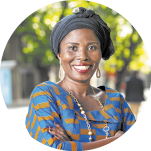
Melissa: I haven't traveled to the beach for many years, because I have worked a lot lately. I hope I'll be able to visit the seaside✚ sometime soon.
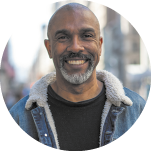
Jackson: I haven't ridden a bike for ages. I used to go to work by bike every day. But after I moved to a big city, I stopped doing that.
WHAT haven't you done for a long time? Talking about life. June 7th, 2020. Available at: https://s.livro.pro/de20wy. Accessed on: Aug. 3rd, 2024.
Possível resposta: Gênero online que permite a troca de ideias e debates sobre temas variados.
2. Leia as frases a seguir sobre a definição e as características do gênero textual fórum de discussão online. Use as palavras do quadro para completar as frases.
- arquivadas
- cadastrar
- data
- debates
- moderador
- tópicos
a ) Trata-se de um site de ■ online no qual as pessoas podem postar mensagens.
Resposta: debates.
b ) Muitas vezes, os participantes precisam se ■ no site para poder ter acesso às conversas.
Resposta: cadastrar.
c ) As conversas costumam ser ■ e, por isso, podem ser lidas em diferentes momentos. Isso as diferencia das interações de um chat.
Resposta: arquivadas.
d ) Os fóruns de discussão online costumam ser organizados por ■. As mensagens são normalmente ordenadas de forma decrescente por ■ de postagem.
Resposta: tópicos; data.
e ) As postagens dos participantes costumam ser aprovadas por um ■.
Resposta: moderador.
3. Releia o texto. Sobre o que a pergunta do fórum propõe que as pessoas conversem?
a ) Ações que elas nunca realizariam.
b ) Ações que elas têm feito regularmente há bastante tempo.
c ) Ações que elas não fazem há bastante tempo.
Resposta: Alternativa c.
Página 214
two hundred fourteen
4. A quais experiências de vida as respostas dos participantes estão relacionadas?
a ) Brincadeiras realizadas na infância.
b ) Aprender a andar de bicicleta.
c ) Viagens.
d ) Usar um meio de transporte alternativo.
Resposta: Alternativas a, c e d.
5. Analise os seguintes trechos das respostas dos participantes do fórum e complete as alternativas com as opções corretas.
I haven't done that for a very long time.
I haven't ridden a bike for ages.
I haven't traveled to the beach for many years.
a ) In these sentences, the verbs are in the ■ (simple past/present perfect) tense in the ■ (affirmative/negative) form.
Resposta: present perfect; negative.
b ) This verb tense is formed by ■ (haven't or hasn't + verb in the past form/haven't or hasn't + verb in the past participle form).
Resposta: haven't or hasn't + verb in the past participle form.
c ) The verb "traveled" is a ■ (regular/irregular) verb. Its past participle is formed by adding the suffix ■ (-d/-ed).
Resposta: regular; -ed.
d ) The verbs done and ridden are ■ (regular/irregular) verbs. The infinitive forms of these verbs are ■ (do and ride/did and rode).
Resposta: irregular; do and ride.
e ) These sentences refer to actions that ■ (have/have not) been done ■ (for/since) a period of time.
Resposta: have not; for.
6. Analise as expressões a seguir. Quais delas poderiam ser utilizadas com for? Por quê?
- I was a child
- last year
- 20 minutes
- weeks
- Monday
- a while
- so long
- eight years
- a few days
Resposta: For 20 minutes; for weeks; for a while; for so long; for eight years; for a few days. Isso porque, em inglês, for é usado para atividades que são ou foram realizadas no decorrer de determinado período. Comentários nas Orientações para o professor.
Activities
1. Imagine you are a participant in the forum you read. What would be your answer to the question in the forum? Write it and share it with a classmate. You can use the information below to write your answer.
- when I was child
- I haven't
- I have
- last year
- I used to
- for
Resposta pessoal. Oriente os estudantes a ampliar o vocabulário consultando um dicionário para elaborar a resposta.
2. Write sentences about the topics below. Remember to write complete sentences. Follow the example.
A food I haven't eaten for a long time:
I haven't eaten spaghetti for a long time.
a ) A place I haven't visited for years.
Possível resposta: I haven't visited São Paulo for years.
b ) Someone I haven't seen for weeks.
Possível resposta: I haven't seen my cousin Bruna for weeks.
c ) A song or a music genre I haven't listened to for months.
Possível resposta: I haven't listened to rock music for months.
d ) A magazine I haven't read for ages.
Possível resposta: I haven't read a fashion magazine for ages.
e ) A TV show I haven't watched for many days.
Possível resposta: I haven't watched a soap opera for many days.
Página 215
two hundred fifteen
3. Read the following sentences and match them with the situations in which they can be used.
A.
Hi! I haven't seen you for so long. How have you been?
B.
Oh, I don't know. I haven't practiced for a long time. Maybe you should invite someone else.
C.
We haven't heard from you for days. How's the trip?
D.
I'm not sure that's a good idea. I haven't eaten that for a long time, ever since I had that terrible stomachache✚.
E.
I would love that! I haven't been to the theater for years.
F.
I'm a little upset because I haven't received a text from her for a few days now.
I. When you text a friend who is abroad.
II. When you meet a friend in the street.
III. When a friend invites you to play tennis.
IV. When someone invites you to see a theater play.
V. When a friend suggests you have junk food for dinner.
VI. When you complain about a friend who hasn't been in touch with you.
Resposta: A – II; B – III; C – I; D – V; E – IV; F – VI.
4. Complete the sentences using haven't or hasn't and one of the following past participle verbs.
- seen
- played
- listened
- gone
- had
- eaten
a ) We ■ each other for so long.
Resposta: haven't seen.
b ) I can't believe you ■ to this song for years.
Resposta: haven't listened.
c ) They ■ out for weeks.
Resposta: haven't gone.
d ) I ■ soccer for months.
Resposta: haven't played.
e ) He ■ any time off for two years.
Resposta: hasn't had.
f ) She ■ chocolate for a very long time.
Resposta: hasn't eaten.
Speaking up
/ʃ/ and /tʃ/
1. Listen to the sentences and repeat.
a ) I'm sure she wishes to live new experiences in her life.
b ) Chuck's teacher has five children.
c ) Sharon dreams of shore fishing with a rod.
d ) I've never eaten cherries or cheese for lunch.
2. Unscramble the words and organize them in two groups according to their sound.
a ) i h c a r
Resposta: chair.
b ) c h u m
Resposta: much.
c ) e e s h p
Resposta: sheep.
d ) p s o h
Resposta: shop.
e ) h s e o s
Resposta: shoes .
f ) s c h a
Resposta: cash.
g ) h p e a c
Resposta: cheap .
h ) e r a h s
Resposta: share.
i ) u h c c h r
Resposta: church .
j ) a s h w
Resposta: wash.
k ) o c p h
Resposta: chop .
l ) a i t n n o
Resposta: nation.
Group 1 - /∫/
Resposta: shop, cash, shoes, nation, wash, sheep, share.
Group 2 - /t∫/
Resposta: chair , much, church, cheap, chop.
3. With a classmate, practice saying the words from the previous activity.
Página 216
two hundred sixteen
Speaking
Talking about an active and inspiring older person
1. Older people have gone through many experiences in their lives and often share these experiences with friends and family. Pair up with a classmate and share with each other a story you heard from an older relative or friend of the family.
Resposta pessoal. Caso algum estudante não tenha uma história para contar, peça-lhe que comente quais tipos de experiências de vida ele acha mais interessante.
2. Read what the following older people say. In your opinion, how can older individuals remain active and engaged in society? Discuss with a classmate.
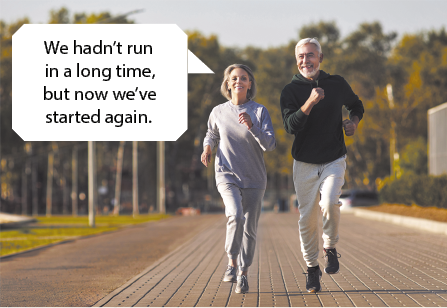

Resposta pessoal. Incentive os estudantes a comentar que é importante quando pessoas idosas voltam a realizar atividades como praticar exercício físico após um longo tempo sendo sedentárias e a se socializar com mais frequência, atitudes que influenciam a saúde e o bem-estar.
3. Think about an older person you know who is active, productive and inspiring. To do this, consider what makes their lifestyle unique. Make notes about this person.
- How old this person is.
- What his/her daily routine is like.
- If he/she still works, does some kind of volunteer work or has a hobby.
- What his/her best qualities are.
- If he/she does any sports.
- Why he/she is special, in your opinion.
Professor, professora: Comentários nas Orientações para o professor.
4. Now, write a short text about this person using your notes.
Professor, professora: Comentários nas Orientações para o professor.
5. Use your text to a make a presentation to your class in English. Follow these steps.
a ) Practice your speech more than once before the presentation.
b ) Pay attention to your tone of voice so that everyone in the class can understand you.
c ) Pronounce the words calmly and correctly.
d ) If possible, show a picture of the person you are talking about.
Professor, professora: Oriente os estudantes a utilizar o texto que fizeram e a selecionar as informações que julgarem mais relevantes para descrever a pessoa sobre quem escolheram falar.
6. After your presentation, reflect on the experience and answer the following questions.
a ) How did your classmates' presentations influence your understanding of active older people?
b ) How did you feel about making a presentation in front of the class?
c ) For you, what were the easiest and most difficult parts of this activity?
Respostas pessoais. Peça aos estudantes que reflitam sobre como as apresentações dos colegas ampliaram ou mudaram a perspectiva que tinham sobre pessoas idosas ativas.
Página 217
two hundred seventeen
Summing up
Now, let's remember what you studied in this unit. List the main points studied in each topic below. Then, talk to a classmate and compare notes. Finally, share your notes with the whole class.
In this unit I…
- talked to my classmates about life experiences;
- read a report about an older person who fulfilled a dream;
- listened to part of a podcast about fears;
- studied the present perfect tense in negative sentences with for;
- learned how to pronounce the sounds /∫/ and /t∫/;
- gave a presentation about an inspiring older person.
Respostas pessoais. Comentários nas Orientações para o professor.
What can I do to improve my English?
- Go back to the topics that I need to improve and ask for help from my teacher or classmates to understand them.
- Categorize the new vocabulary in my notebook.
- Read other magazine articles and books about inspiring people.
- Listen to other podcasts.
Going further
The book You don't have to learn everything the hard way: what I wish someone had told me teaches teens about some complicated things in life. By reading this book, you can learn about lots of topics related to life experiences.
SAUL, Laya. You don't have to learn everything the hard way: what I wish someone had told me. 2. ed. Denver: Kadima Press, 2018.
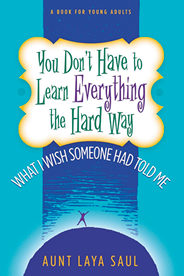
The book Older, faster, stronger: what women runners can teach us all about living younger, longer shows how female athletes, even at an advanced age, continue to push boundaries✚ and inspire others with their athletic achievements.
WEBB, Margaret. Older, faster, stronger: what women runners can teach us all about living younger, longer. Emmaus: Rodale Press, 2014.
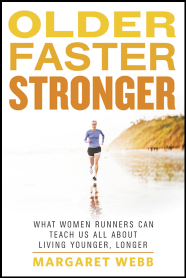
The film The Swimmers tells the true story of Syrian sisters Yusra and Sara Mardini, who, fleeing✚ from the civil war, save numerous lives by swimming and guiding a refugee boat to safety in the Aegean Sea. Yusra later competes in the Rio de Janeiro Olympics as part of the Refugee Team.
THE SWIMMERS, by Sally El Hosaini. United Kingdom: Netflix, 2022 (134 minutos).

The film Rams shows how two farmers in Iceland✚ face personal and professional challenges in their old age, highlighting the resilience and value of life experience.
RAMS, by Grímur Hákonarson. Iceland: Netop Films, 2020 (93 minutos).
